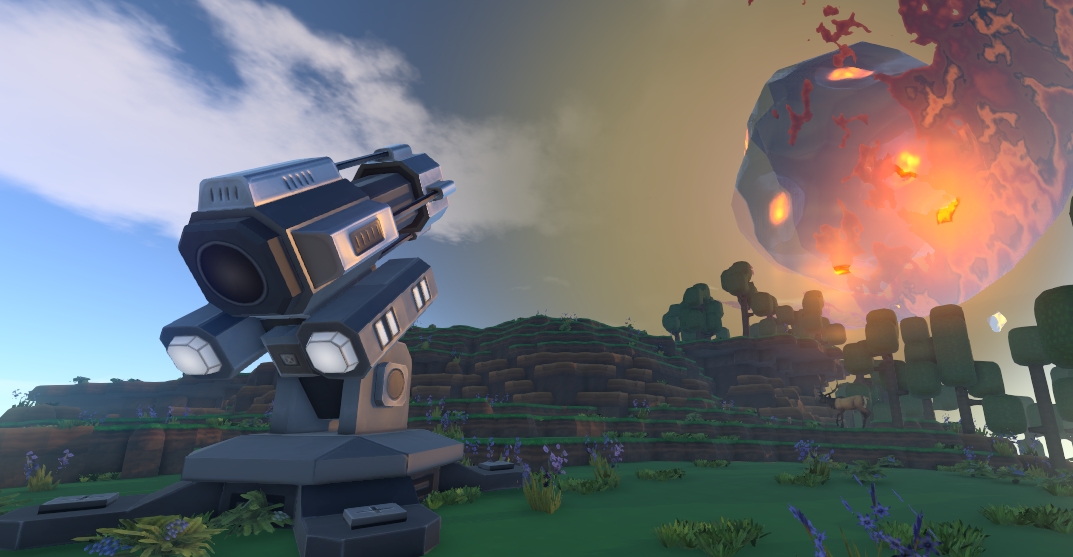

JK: With the game focused on social institutions like governments and economies, social intelligence becomes a huge advantage. MB: What role does a player's social intelligence play in a "social sim" like Eco?

Since the game is all about social institutions, the relationships you form and how you interact with other players is a key mechanic to the game. We allow a big range of cooperation in the game, from asynchronous interactions in the economy (buying at your store) to sharing property and building together. It's rewarding both in gameplay terms and personal terms. JK: In Eco there's nothing forcing you to cooperate, but you'll be a lot more effective if you do. MB: In terms of a game design approach, what's the difference between requiring cooperation and creating a world in which players want to cooperate? How does Eco encourage authentic cooperation? Debating your point with other players with vastly different specialties and immediate goals is challenging and a key aspect of the game. They're really looking at the wider view and working to understand other people's perspectives.

The game is still in early stages, but it's great to see discussions among players about what should be allowed in the world, and all the different opinions that people weigh in with. Letting players realize that, rather than beating them over the head with the message, is much more powerful. You give this player a rich system where they have things they want to do unrelated to "saving the environment," but through pursuing those goals they begin to see the importance of the ecosystem and the world around them. JK: I believe it's more powerful as a secondary goal. Can you talk about why you took that approach? You've said that Eco is actually, first, about creating a civilization and, second, about the wise use of natural resources. MB: People sometimes describe Eco as a game about saving the environment. So, how does John Krajewski, founding CEO of Eco studio Strange Loop Games, approach designing a game that relies so much on players' self-awareness, cooperation, and empathy? He was kind enough to share some gems based on his experience developing this fantastic multiplayer sim. That's, like, a basic human right." Well said. Case in point: When considering how much to "charge" other players to use his in-game crafting table, Eco game reviewer The 8-Bit Ninja sets a generous rate, musing, "Everybody should have access to crafting. This design encourages a mindset oriented towards the common good. Eco players have to confront the conflict between individual wants and collective needs ( Isn't my mansion awesome? Oh, wait, where'd all the trees go?). Players collect natural resources to build things and drive an economy, analyze data to make projections ( At this hunting rate, when will the elk go extinct?), and work together to enact laws to protect vulnerable populations.Įco brings the consequences of resource mismanagement into sharp relief, especially for those of us who haven't (yet) experienced them in drastic ways in the real world. To celebrate, get out there and hug a tree, join your local March for Science, then settle in and play Eco, Strange Loop Games' award-winning online, multiplayer survival sim.Įco calls on players to work together on a shared server to tackle only the most pressing dilemma of our era: How do we save the om ourselves? Players work within a simulated ecosystem to develop the technology to prevent a catastrophic meteor strike without dismantling that ecosystem in the process.


 0 kommentar(er)
0 kommentar(er)
